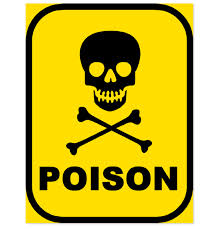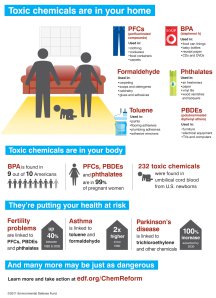The Intersection Between Our Environment and Reproductive Health
Apr 21st, 2014 | By admin | Category: Reproductive Rights/Women's RightsBy Suzanne York, www.howmany.org
What is the connection between the health of our bodies and the health of the planet?
The sad reality is that every day products are damaging our health, especially the reproductive health of both women and men, and damaging our environment. As people in the U.S. and around the world celebrate and honor Earth Day, it is a good time to educate ourselves on how every day products threaten the well-being of people and nature.Reproductive health is not often mentioned on Earth Day or linked with environmental issues. Yet toxic chemicals are all around us – from paint, plastics, pesticides, personal care products – and negatively affecting human health, particularly women’s reproductive health.
Three organizations (the Sierra Club, Reproductive Health Technologies Project, and WE ACT for Environmental Justice) working to raise awareness on the intersection between environmental, social and reproductive justice just released a toolkit called Creating a Climate for Change: The Earth Kit (Environmental And Reproductive Toxins for Health). It explores the links between environmental and reproductive health and justice.
How does the air we breathe and the products we use affect our bodies? Sara Alcid of the Reproductive Health Technologies Project, in a webinar presentation, listed a number of ways that toxic chemicals alter people’s bodies:
- infertility
- reduced sperm count and quality
- alterations in ovarian function and menstruation
- endometriosis
- altered fetal development
- miscarriage and pre-term birth
- altered prostrate development, breast development and puberty onset
This impacts women, men, and children. Toxic chemicals are endocrine disrupters that alter normal hormone functions and are linked to the reproductive health issues listed above. Alcid also noted that there are 287 different chemicals found in the umbilical cords of newborns. Often, those most affected are communities of color and low income communities that have less access to health insurance and quality affordable care (which hopefully is changing now under the Affordable Care Act).
The Toxic Substances Control Act, the U.S. law that regulates toxic chemicals, is nearly forty years old. It is high-time to reassess and update policy on chemical pollutants and prioritize the rights of all Americans, as well as protect the environment. Creating a Climate for Change states that “the current system for regulating chemicals is so broken that only 200 of the 80,000 chemicals in production today have been tested for safety, and only five of those have been regulated.”Implementing the precautionary principle approach and thereby ensuring that products are safe before they come on the market is an obvious and sensible approach to take. Call on Congress to take action by visiting the Safer Chemicals Healthy Families online action page.
According to the Centers for Disease Control, the majority of women have toxic chemicals in their bodies. This is bad for people and the planet. In the face of increasingly severe climate disruptions and environmental degradation, we need to do all we can to strengthen and invest in women’s rights and human rights – and the rights of future generations – and thereby empower people to be able to take care of themselves and their families.
The line between environmental health and reproductive health is not blurry. It is clear that toxic substances harm everybody. Regulating chemicals is a no-brainer, except of course to companies that profit from toxins. Ridding our bodies and environment of toxic chemicals is the right thing to do for planetary and human well-being.
Suzanne York is a senior writer with the Institute for Population Studies



